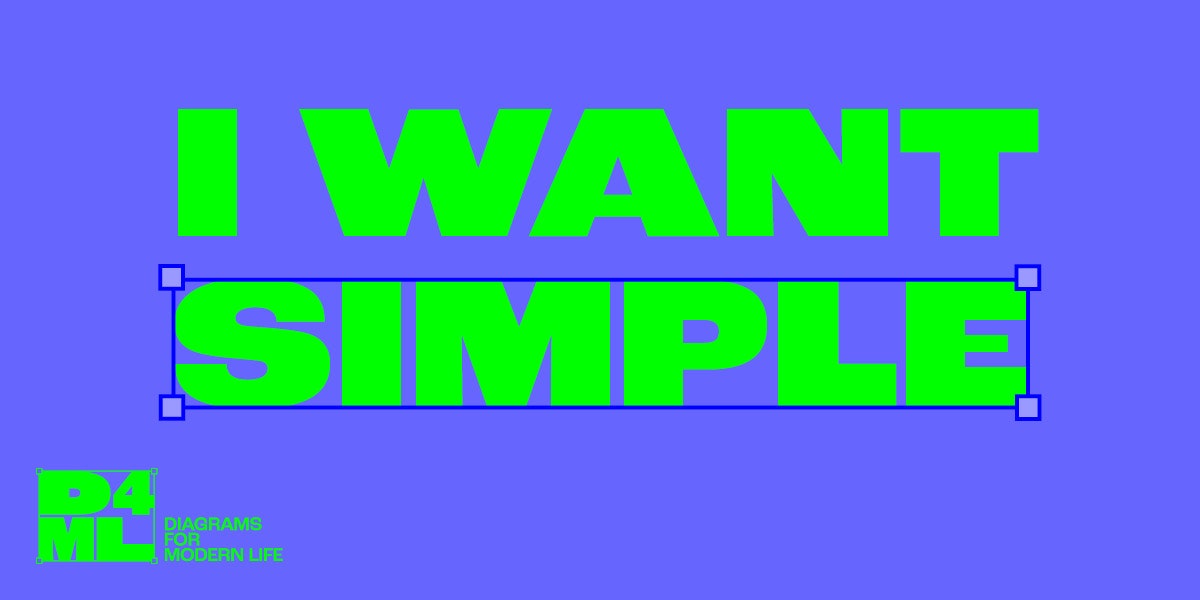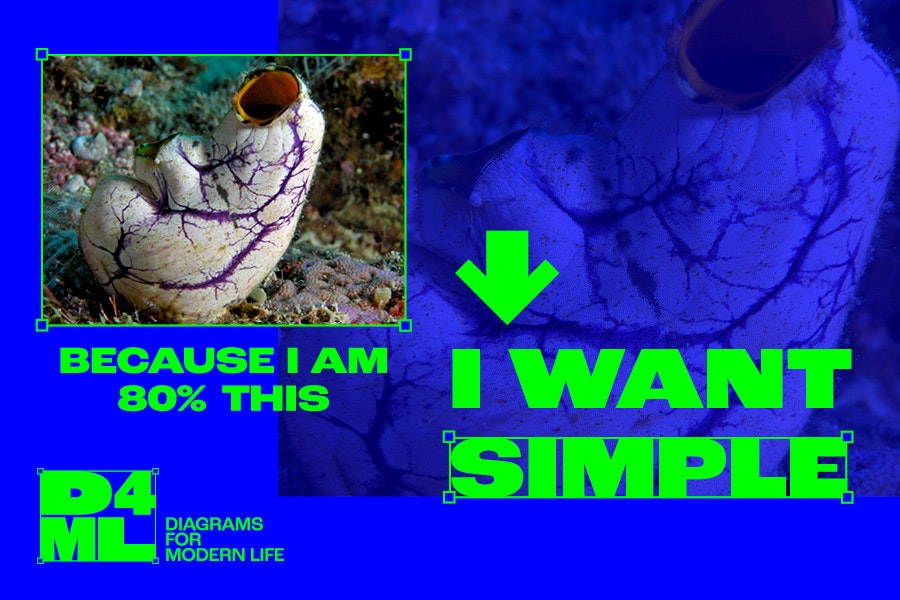Overstuffing Content & Sea Squirts? | Blog | Corke Wallis
Founder / Creative Director
@10:00, 11.04.2025

Ever wondered what your brain and a sea squirt have in common? Turns out, understanding this quirky connection might completely change the way you approach your next presentation or ad.
When a client is cramming more and more content into an overstuffed presentation, website, or ad, stand firm and say, “Our brains have evolved to WANT SIMPLE.”
I shared a theory a couple of weeks ago about how, because we have 80% the same genes as a Sea Squirt - a creature that eats its own brain when it finds a home - humans tend to settle on brands and stay with them. We get comfortable and lazy. It's just a theory, of course, but it sparked an interesting conversation.

This conversation led me to revisit the theory of Cognitive Misers. According to Wikipedia, the human mind is considered a Cognitive Miser because humans naturally prefer to think and solve problems in simpler, less effortful ways, rather than employing more sophisticated and strenuous thought processes, regardless of their intelligence.
So: Cognitive Miser + Sea Squirt Genes = WANT SIMPLE.
We like SIMPLE because complicated and difficult tasks burn more (evolutionarily expensive) calories. To put this into perspective, consider this: the brain represents just 2% of a person’s total body weight but accounts for 20% of the body's total energy use. During a typical day, a person uses about 320 calories just to think. And if someone does cognitively challenging work for eight hours, they would burn approximately 100 more calories than someone spending the same amount of time daydreaming. I don’t know about you, but that little factoid blew my mind.
Moreover, simplicity isn't just beneficial biologically - it’s also key to effective communication and branding. Cluttered messages confuse audiences, dilute impact, and ultimately undermine your objectives. Clear, concise communication ensures that your message is processed quickly and effectively, leading to better engagement and retention.
In other words, our biological wiring makes us naturally attracted to simplicity. So, next time a client tries to overload content, remind them gently - our brains crave simplicity. It's not laziness; it's biology.
